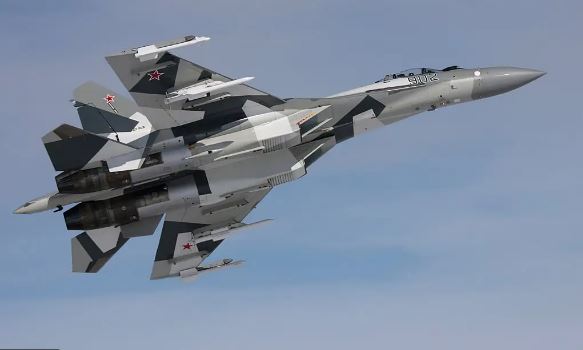New Delhi: The Indian Air Force (IAF) is in the process of acquiring 114 multi-role jets, a project that is likely to cost around Rs 1.3 trillion and take at least a decade to complete before the first fighter jet is supplied. Moscow is reportedly offering two fighter different aircraft, MiG-35 and Sukhoi-35, to the IAF. But the service appears to have been unimpressed by the MiG-35.
While the French-made Rafale seems to be in the lead, as revealed by a widely-circulated survey by media, India’s old friend Russia is also hoping to secure this contract.
This is especially significant in light of the cancellation of the Su-35’s orders by Indonesia and Egypt, seen as a major setback for Russia’s defense industry.
Last year, it was reported that Russia is proposing its Checkmate, a next-generation fighter jet, to India, but given that the jet is still in development, India is unlikely to consider it for ongoing procurement. Hence, the Su-35 stands a chance for this contract.
In recent years, India has attempted to lessen its reliance on other countries for weapons to boost local manufacturing. However, Russia continues to play an important role in enhancing the capability of India’s military. The recent delivery of the S-400 air defense systems is a case in point.
India has long been a major customer of Russian weapons. IAF operates fighter jets such as the Mig-21 and Su-30MKI.
An evaluation by the US Congressional Research Service (CRS) revealed last year that while India’s reliance on Russian weapons and equipment has decreased significantly, the Indian military cannot operate effectively without Moscow-supplied military hardware and will continue to depend on it in the near and medium-term.
Russia, like other aircraft manufacturing nations, is aggressively pushing its fighter jets to India. In 2019, the Russian Federal Service for Military-Technical Cooperation announced that it will choose the state-run Hindustan Aeronautics Limited (HAL) as its strategic partner for the MiG-35 and Su-35.
“We believe in HAL and have a long-standing partnership with it,” said Anatoly G. Punchuk, the deputy director of the agency, during a conversation with select journalists at Aero India.
(_Vinayak)

